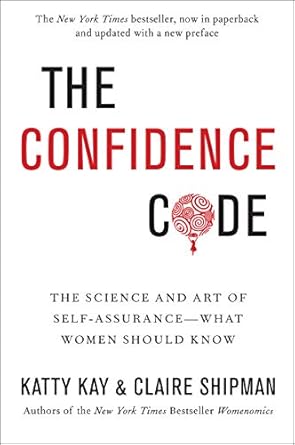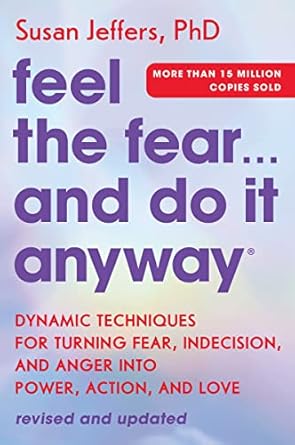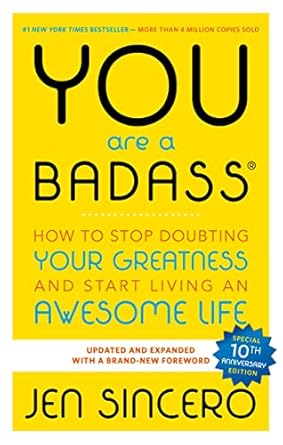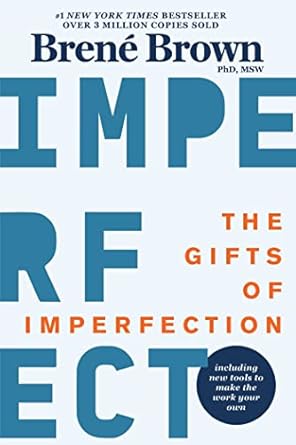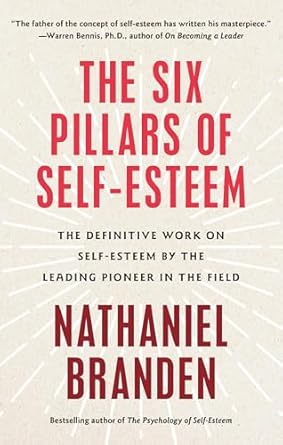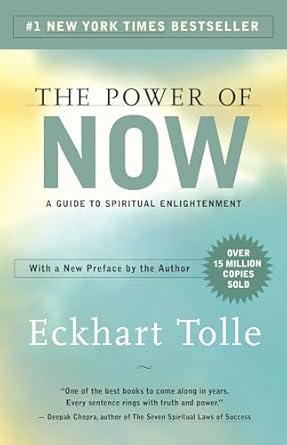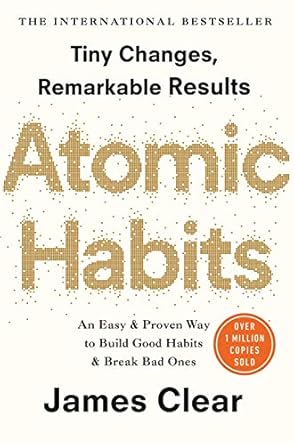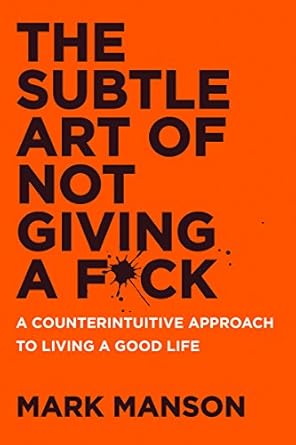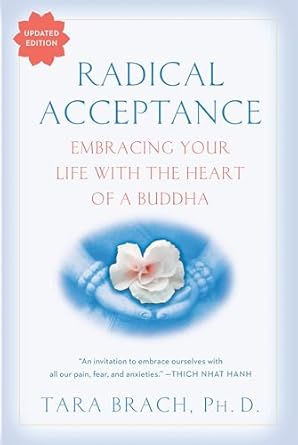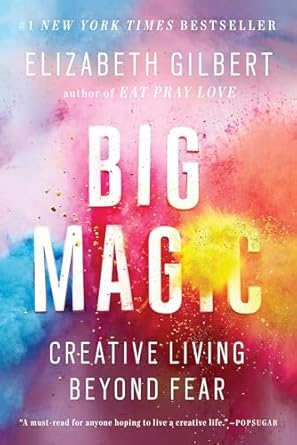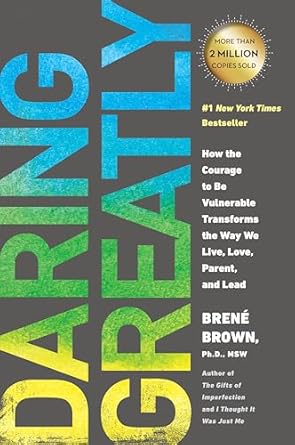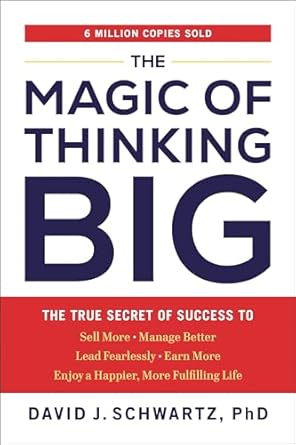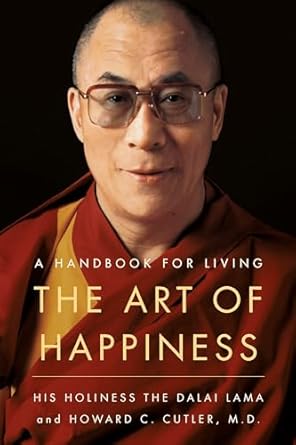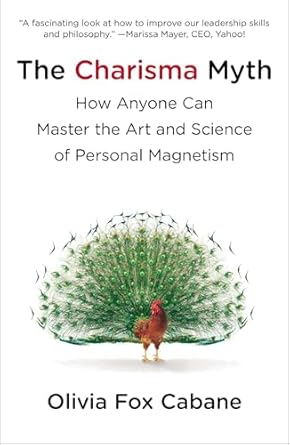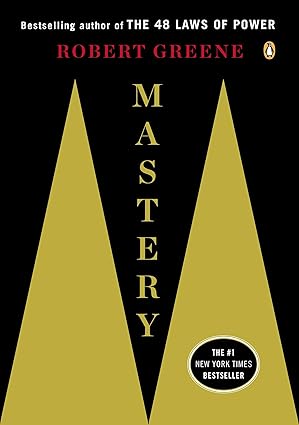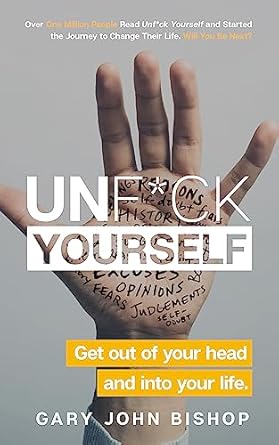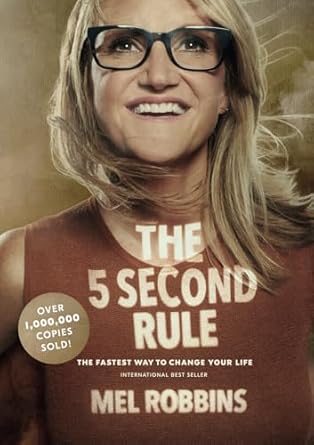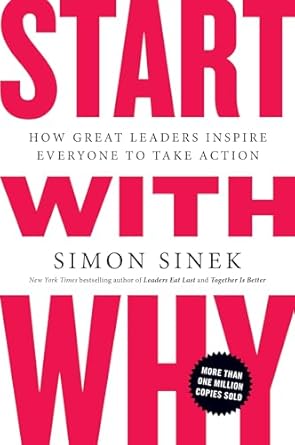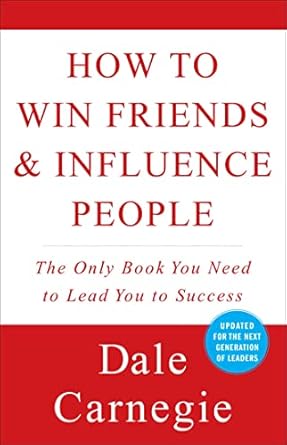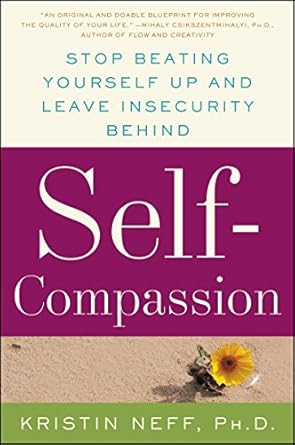Summary: In today's article, I've compiled 20 of the best books for self-confidence, offering insights and practical tools to help you overcome self-doubt and build lasting confidence. My top 3:
- The Confidence Code by Katty Kay and Claire Shipman
- Feel the Fear and Do It Anyway by Susan Jeffers
- You Are a Badass by Jen Sincero
Self-confidence books offer practical advice and insights to help you overcome self-doubt and build a positive mindset. They teach you to embrace your flaws, face your fears, and take action toward your goals. With a mix of motivational stories, research, and tips, these books help boost resilience, self-esteem, and how you see yourself. Whether you want to improve relationships, advance your career, or feel more confident day-to-day, they’re a great resource for personal growth.
TOP 20: Best Books for Self Confidence
- The Confidence Code by Katty Kay and Claire Shipman
- Feel the Fear and Do It Anyway by Susan Jeffers
- You Are a Badass by Jen Sincero
- The Gifts of Imperfection by Brené Brown
- The Six Pillars of Self-Esteem by Nathaniel Branden
- The Power of Now by Eckhart Tolle
- Atomic Habits by James Clear
- The Subtle Art of Not Giving a F*ck by Mark Manson
- Radical Acceptance by Tara Brach
- Big Magic by Elizabeth Gilbert
- Daring Greatly by Brené Brown
- The Magic of Thinking Big by David J. Schwartz
- The Art of Happiness by Dalai Lama and Howard Cutler
- The Charisma Myth by Olivia Fox Cabane
- Mastery by Robert Greene
- Unfu*k Yourself by Gary John Bishop
- The 5 Second Rule by Mel Robbins
- Start with Why by Simon Sinek
- How to Win Friends and Influence People by Dale Carnegie
- Self-Compassion by Kristin Neff
1. The Confidence Code
- Author: Katty Kay, Claire Shipman
- About: This book focuses on unlocking the secrets to confidence, combining scientific research with personal anecdotes to explore how women can embrace confidence and overcome self-doubt.
- Style of writing: Research-based, accessible, motivational
- Length: Approx. 70,000 words
- Year written: 2014
- Emotional impact: Empowering, practical, it offers an actionable path to increased confidence.
- Difficulty level: Easy to moderate
- Why read it: It’s especially beneficial for women looking to boost their self-assurance in both personal and professional spheres.
2. Feel the Fear and Do It Anyway
- Author: Susan Jeffers
- About: This classic self-help book provides tools for overcoming fear and taking action despite it, encouraging readers to build their courage and confidence.
- Style of writing: Encouraging, straightforward
- Length: Approx. 50,000 words
- Year written: 1987
- Emotional impact: It leaves readers feeling braver and more empowered to face their fears.
- Difficulty level: Easy
- Why read it: Ideal for anyone struggling with fear, this book gives practical advice to overcome doubts and take bold steps forward.
3. You Are a Badass
- Author: Jen Sincero
- About: A vibrant and unapologetically confident guide to self-love, success, and personal transformation. Sincero encourages readers to unlock their potential and achieve their goals.
- Style of writing: Motivational, humorous, casual
- Length: Approx. 50,000 words
- Year written: 2013
- Emotional impact: Highly motivating, it inspires a strong sense of self-worth and possibility.
- Difficulty level: Easy
- Why read it: If you need a confidence boost and a kick of motivation, this book is a fun, energetic read.
4. The Gifts of Imperfection
- Author: Brené Brown
- About: Brown explores the power of embracing vulnerability, imperfection, and self-compassion. She encourages readers to let go of perfectionism to live a more fulfilled life.
- Style of writing: Warm, compassionate, research-based
- Length: Approx. 60,000 words
- Year written: 2010
- Emotional impact: Deeply transformative, this book encourages a shift in how you view yourself and others.
- Difficulty level: Moderate
- Why read it: Essential for those seeking to cultivate self-compassion and let go of shame.
5. The Six Pillars of Self-Esteem
- Author: Nathaniel Branden
- About: Branden presents six essential practices for developing and maintaining self-esteem, emphasizing the role of self-awareness and self-acceptance.
- Style of writing: Theoretical, insightful
- Length: Approx. 100,000 words
- Year written: 1994
- Emotional impact: Thought-provoking, helps the reader to understand the foundational elements of self-worth.
- Difficulty level: Moderate to advanced
- Why read it: For those wanting a more philosophical, in-depth exploration of self-esteem and personal growth.
6. The Power of Now
- Author: Eckhart Tolle
- About: A guide to living in the present moment, Tolle teaches readers how to free themselves from the anxieties of the past and future to achieve inner peace and presence.
- Style of writing: Spiritual, meditative
- Length: Approx. 60,000 words
- Year written: 1997
- Emotional impact: Deeply calming and life-changing, encouraging profound self-awareness.
- Difficulty level: Moderate to advanced
- Why read it: It’s transformative for those looking to cultivate mindfulness and inner peace.
7. Atomic Habits
- Author: James Clear
- About: Clear provides a practical guide to building good habits and breaking bad ones, emphasizing the power of small, incremental changes over time.
- Style of writing: Practical, evidence-based, clear
- Length: Approx. 80,000 words
- Year written: 2018
- Emotional impact: Inspires a sense of control and agency, with actionable insights.
- Difficulty level: Easy to moderate
- Why read it: Perfect for anyone looking to change their habits and improve their life step by step.
8. The Subtle Art of Not Giving a F*ck
- Author: Mark Manson
- About: Manson challenges traditional self-help advice, promoting the idea of caring less about unimportant things and focusing on what truly matters.
- Style of writing: Bold, irreverent, direct
- Length: Approx. 70,000 words
- Year written: 2016
- Emotional impact: Often humorous and refreshing, it pushes readers to reassess their priorities and embrace vulnerability.
- Difficulty level: Easy
- Why read it: Ideal for those tired of conventional positivity and looking for a more grounded, realistic approach to self-growth.
9. Radical Acceptance
- Author: Tara Brach
- About: Brach explores the concept of radical acceptance — embracing oneself and life without judgment or resistance. It blends mindfulness and Buddhist teachings.
- Style of writing: Compassionate, meditative
- Length: Approx. 80,000 words
- Year written: 2003
- Emotional impact: Healing and calming, promotes self-compassion and acceptance.
- Difficulty level: Moderate
- Why read it: Ideal for those struggling with self-criticism or emotional pain, this book offers tools for deep healing.
10. Big Magic
- Author: Elizabeth Gilbert
- About: Gilbert explores creativity, encouraging readers to embrace curiosity and let go of fear to pursue their passions.
- Style of writing: Inspirational, creative
- Length: Approx. 70,000 words
- Year written: 2015
- Emotional impact: Uplifting and motivational, it sparks a renewed sense of creative purpose.
- Difficulty level: Easy
- Why read it: If you’re seeking to unlock your creative potential or break free from self-doubt, this is a great read.
11. Daring Greatly
- Author: Brené Brown
- About: Brown examines the power of vulnerability, showing how embracing it can lead to greater courage, connection, and creativity.
- Style of writing: Warm, vulnerable, research-based
- Length: Approx. 80,000 words
- Year written: 2012
- Emotional impact: Deeply impactful, urging readers to take brave risks and live authentically.
- Difficulty level: Moderate
- Why read it: For those who want to live a fuller, more connected life, embracing vulnerability is key.
12. The Magic of Thinking Big
- Author: David J. Schwartz
- About: Schwartz teaches the importance of thinking big and aiming high, focusing on the impact of positive thinking and setting ambitious goals.
- Style of writing: Practical, motivational
- Length: Approx. 75,000 words
- Year written: 1959
- Emotional impact: Energizing and inspiring, encourages big thinking and expansive vision.
- Difficulty level: Easy
- Why read it: Ideal for those looking to break through self-imposed limitations and achieve their highest potential.
13. The Art of Happiness
- Author: Dalai Lama, Howard Cutler
- About: This book offers insights into the Dalai Lama’s teachings on happiness, exploring how compassion, mindfulness, and inner peace can lead to lasting contentment.
- Style of writing: Philosophical, spiritual, conversational
- Length: Approx. 80,000 words
- Year written: 1998
- Emotional impact: Peaceful, transformative, encouraging inner harmony and kindness.
- Difficulty level: Moderate
- Why read it: It offers a path to happiness rooted in compassion and mindfulness, perfect for anyone seeking peace.
14. The Charisma Myth
- Author: Olivia Fox Cabane
- About: Cabane outlines how charisma is a skill that can be developed, providing practical strategies for becoming more charismatic and influential.
- Style of writing: Engaging, practical
- Length: Approx. 70,000 words
- Year written: 2012
- Emotional impact: Empowering, it offers tangible ways to boost one's presence and influence.
- Difficulty level: Easy
- Why read it: For anyone interested in improving their social skills and presence, this book provides a roadmap for developing charisma.
15. Mastery
- Author: Robert Greene
- About: Greene examines the paths to mastery in any field, emphasizing the importance of continuous learning, practice, and perseverance.
- Style of writing: Analytical, historical, deep
- Length: Approx. 150,000 words
- Year written: 2012
- Emotional impact: Motivating, it inspires persistence and dedication in pursuing one’s craft.
- Difficulty level: Advanced
- Why read it: If you’re looking to master a skill or become an expert, this book offers invaluable insights.
16. Unfu*k Yourself
- Author: Gary John Bishop
- About: This book is a blunt, no-nonsense guide to getting out of your own way. Bishop focuses on taking responsibility for your life and making empowering decisions.
- Style of writing: Direct, motivational, sometimes harsh
- Length: Approx. 50,000 words
- Year written: 2016
- Emotional impact: Empowering and challenging, it pushes readers to stop making excuses and take charge of their lives.
- Difficulty level: Easy
- Why read it: If you're looking for tough love and a wake-up call to stop self-sabotaging, this book gives you the push you need.
17. The 5 Second Rule
- Author: Mel Robbins
- About: Robbins teaches a simple tool for breaking procrastination and hesitation: counting down from five and taking action immediately. This rule is designed to help you move from inaction to action.
- Style of writing: Motivational, practical
- Length: Approx. 50,000 words
- Year written: 2017
- Emotional impact: Quick, effective, energizing—it provides a simple yet powerful tool for overcoming hesitation.
- Difficulty level: Easy
- Why read it: If you're prone to procrastination or fear of failure, this book provides a practical solution to push past it quickly.
18. Start with Why
- Author: Simon Sinek
- About: Sinek explores the idea that the most successful individuals and organizations are driven by a clear sense of “why” — a deeper purpose that drives their actions.
- Style of writing: Inspirational, strategic, thought-provoking
- Length: Approx. 60,000 words
- Year written: 2009
- Emotional impact: Motivating, it encourages readers to reflect deeply on their purpose and values.
- Difficulty level: Moderate
- Why read it: If you're looking to lead with purpose or discover deeper motivation in your personal or professional life, this book provides clarity.
19. How to Win Friends and Influence People
- Author: Dale Carnegie
- About: A classic book on interpersonal relationships, Carnegie offers timeless principles for building rapport, influencing people, and improving social interactions.
- Style of writing: Friendly, practical, conversational
- Length: Approx. 75,000 words
- Year written: 1936
- Emotional impact: Positive, it gives readers confidence in their ability to influence others and build lasting relationships.
- Difficulty level: Easy
- Why read it: Essential for anyone seeking to improve their communication skills and build strong personal or professional relationships.
20. Self-Compassion
- Author: Kristin Neff
- About: Neff explores the power of self-compassion and how treating yourself with kindness and understanding can lead to greater emotional resilience and well-being.
- Style of writing: Gentle, reflective, research-based
- Length: Approx. 80,000 words
- Year written: 2011
- Emotional impact: Deeply healing, it helps readers cultivate a compassionate inner dialogue and overcome self-criticism.
- Difficulty level: Moderate
- Why read it: Perfect for those who struggle with self-criticism or who want to improve their emotional well-being by embracing self-compassion.
Conclusion
In conclusion, building self-confidence is a personal journey, and the right books can make all the difference. The Confidence Code, Feel the Fear and Do It Anyway, and You Are a Badass are some of the best choices for anyone looking to tackle self-doubt and unlock their true potential. These books combine practical advice, motivation, and proven strategies to help you face fears, embrace your strengths, and take meaningful steps toward growth. Reading them will give you the tools to boost your confidence and change the way you handle life’s challenges.

